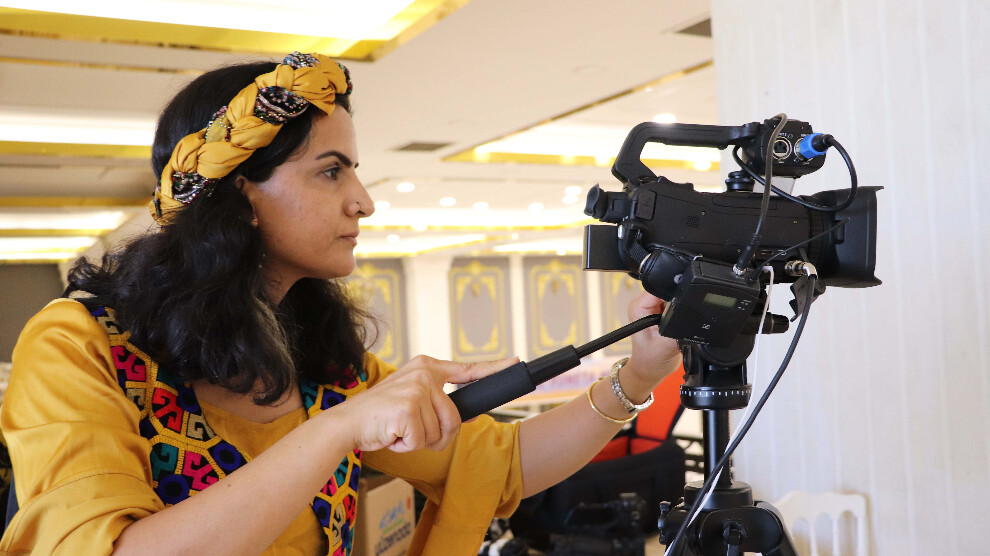Journalistic questions considered as provocation
Diyarbakır 4th Criminal Court has published its reasoned judgment for journalist Nurcan Yalçın, who has been sentenced to two years and six months in prison on charges of “aiding a (terrorist) organization knowingly and willingly”.

MEDİNE MAMEDOĞLU
Amed – Journalist Nurcan Yalçın was detained in a raid on her house on February 4, due to a video interview she took from women sitting in front of the barricade before the 24-hour curfews declared in Amed's Sur district between 2015 and 2016. After her detention, an investigation was opened against her. The prosecutor finalized his arguments in the first hearing and sought her conviction on terror-related charges before she and her lawyer presented a defense. On September 22, the final hearing of the trial was held and the Diyabakır 4th Criminal Court sentenced her to two years and six months in prison on charges of “aiding a (terrorist) organization knowingly and willingly”.
The reasoned judgment has been published
The Diyarbakır 4th High Criminal Court, which showed the video interview that emerged after seven years and the questions asked by Nurcan Yalçın in the interview, as evidence for the prison sentence, has published its reasoned judgment. In the reasoned judgment, the court evacuated the questions asked by the journalist as provocation and stated that Nurcan Yalçın gave moral support to the organization in her video interview.
The court considers the questions asked by the journalist as provocation for uprising
In its reasoned judgment, the Diyarbakır 4th Criminal Court claims that Nurcan Yalçın had provoked interviewees in her video interview by asking questions such as “How are the operations going?” and “How do you defend your neighborhood?”
“Even though there is no evidence showing that the accused gets included in the hierarchy of the organization, it is understood that the accused gave moral support to the organization in order to give moral motivation, and she committed the crime of Aiding Armed Terrorist Organization knowingly and willingly,” the reasoned judgment read.
